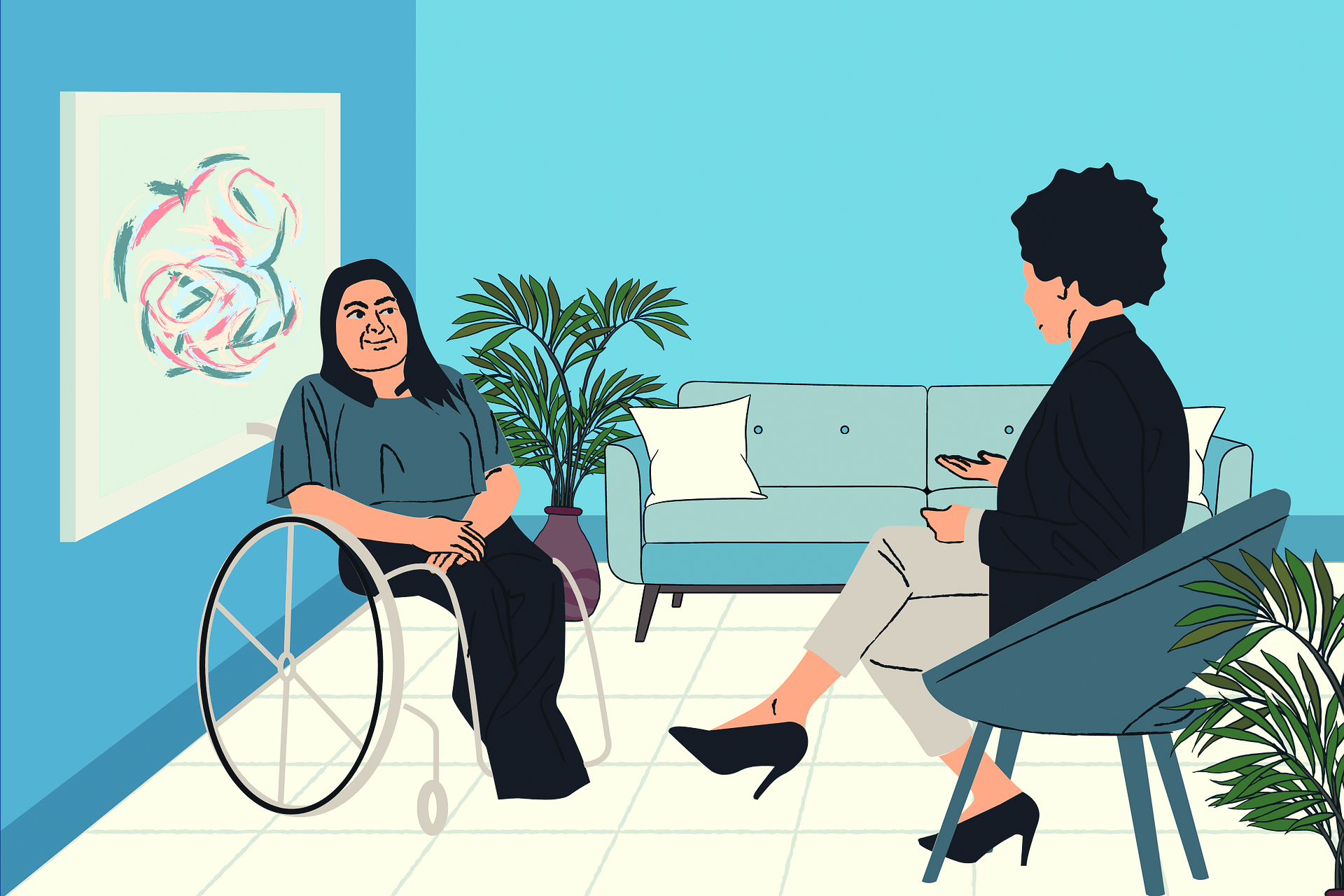A healing touch for mind
Despite having its roots in the Indian culture, ‘therapy’ as a healing mechanism has come to be surrounded by a plethora of myths and taboo

I am a 25-year-old working professional. I have been meaning to start therapy for a while but am quite unsure about how and what it entails. I do not have any ‘traumatic’ or ‘big issues’ but many of my friends have said they benefited from therapy, so I was curious to see how it fits into my self-growth. What should I be prepared for?
What is therapy?
Therapy or psychotherapy are often used interchangeably. The word stems from the Greek expression ‘psyche’ meaning mind or soul, and ‘therapeia’ which means to heal or treat.
Therapy is a broad umbrella term that refers to various therapeutic techniques that help improve one’s mental, emotional, and psychological well-being and overall functioning.
During regular sessions, the therapist works with the individual (client) to identify their concerns and develop strategies to address the same. Through this process, individuals can gain greater insight into their thoughts, feelings, and behaviours, and develop skills and techniques to cope with the challenges they face in their lives. Some individuals can also develop better introspection and focus on getting rid of maladaptive coping skills (e.g., nail biting, drinking, binge-eating).
Is it only a Western concept?
The practice of therapy has been there in the Indian context dating back thousands of years. The ancient Indian texts known as the Vedas and Upanishads contain numerous references to
the use of counselling and psychological techniques to address
mental health and well-being. Ayurveda and yoga have a long tradition of spiritual and philosophical practices, and can be seen as a precursor to modern forms of psychotherapy. Even the teachings of Buddha emphasized the importance of mindfulness practice, observing emotions, and self-awareness, which now form the foundation of many therapeutic practices.
Why are we, as Indians, still so hesitant about seeking therapy?
Stigma still prevails around seeking help for one’s mental health. We are brought up with the great misbelief that seeking help for mental health means that we are not strong enough to do so ourselves. Furthermore, the idea of toxic positivity breeds that we must always be positive and bounce back, no matter what.
The other factors include, but are not limited to: lack of awareness, cost, time investment, and trust.
Who can go to therapy?
Anyone. Therapy can be started at an early age, and there is no upper age limit to it. Different specialists are dealing with therapies for different ages.
What are the popular therapies that I should be aware of?
Therapy can be conducted for an individual or in a group. The most common therapy formats are:
* CBT: Cognitive behavioural therapy;
* Mindfulness-based CBT;
* IPT: Interpersonal therapy;
* DBT: Dialectical behavioural therapy;
* Trauma-informed therapy;
* Somatic therapy;
* Psychodynamic therapy;
* Family therapy;
* Relationship counselling/ marital therapy;
* ACT: Acceptance and commitment therapy;
* Group therapy;
* Dance and movement therapy.
Who conducts therapy?
Therapy is typically conducted by mental health professionals who have received specialized training in counselling and psychotherapy. Therapy involves talking to a trained mental health professional, such as a psychologist, psychiatrist, or licensed therapist, in a safe and confidential environment.
What is teletherapy?
Therapy can be conducted using modern technologies like video and audio for clients who stay far or are unable to visit a therapist in person. During the COVID-19 pandemic, this became hugely popular and continues to be.
How is therapy different from coaching?
It is important to note that not everyone who provides advice or guidance is a trained therapist, and not all forms of support are considered therapy. For example, life coaches or spiritual advisors may provide guidance and support, but may not have the training or qualifications to provide therapy. Life coaches do not take up clinical cases and have a different skill set than a therapist.
What kind of issues are covered in therapy?
While each therapist may have their area of expertise, broadly speaking, the following can be addressed:
A wide range of issues, including mental health conditions such as depression, anxiety, substance dependence, psychosis, and trauma, as well as relationship problems, stress management, grief and loss, and other life challenges are covered in therapy.
Do I need medication if I am in therapy?
Not automatically. One can be in therapy and may or may not require medication. Each case is unique. Most therapists would refer for medication if they find that the client is not improving or has a severe debilitating clinical disorder.
What do I need to be prepared for before my first therapy session & what should I look out for?
Preparing for your first session can be useful. Try to reach early. Jot down a few talking points and keep an open mind. Don’t be quick to judge the therapist or anticipate some magical insights from the first few sessions.
A positive experience may leave you feeling neutral or lighter and heard. On the contrary, a negative experience can make you felt judged and unheard, or the therapist not being unable to help create a safe space for you.
Myth: “Retail therapy is my therapy.”
Fact: No. therapy is therapy. Retail therapy is just therapeutic for some. It can’t replace therapy.
Myth: My best friend or partner is my therapist.
Fact: Again no. Your loved ones will come from some preconceived notion around you and that can lead to bias. A therapist is a neutral third party with no bias towards you.
Myth: I don’t have any major disorder, so I don’t need therapy. Therapy is only for unstable or disturbed people.
Fact: Anyone can seek therapy, without a disorder as well.
Movies about therapy
‘Dear Zindagi’ and ‘Silver Linings Playbook’
Send your questions to [email protected]



